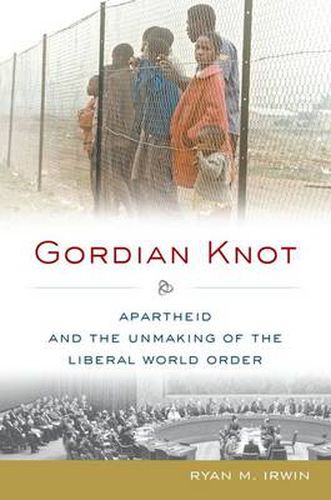Readings Newsletter
Become a Readings Member to make your shopping experience even easier.
Sign in or sign up for free!
You’re not far away from qualifying for FREE standard shipping within Australia
You’ve qualified for FREE standard shipping within Australia
The cart is loading…






Writing more than one hundred years ago, African American scholar W.E.B. Du Bois speculated that the great dilemma of the twentieth century would be the problem of the color line.
Nowhere was the dilemma of racial discrimination more entrenched-and more complex-than South Africa.
This book looks at South Africa’s freedom struggle in the years surrounding African decolonization, and it uses the global apartheid debate to explore the way new nation-states changed the international community during the mid-twentieth century.
At the highpoint of decolonization, South Africa’s problems shaped a transnational conversation about nationhood. Arguments about racial justice, which crested as Europe relinquished imperial control of Africa and the Caribbean, elided a deeper contest over the meaning of sovereignty, territoriality, and development.
This contest was influenced-and had an impact on-the United States. Initially hopeful that liberal international institutions would amicably resolve the color line problem, Washington lost confidence as postcolonial diplomats took control of the U.N. agenda. The result was not only America’s abandonment of the universalisms that propelled decolonization, but also the unraveling of the liberal order that remade politics during the twentieth century.
Based on research in African, American, and European archives, Gordian Knot advances a bold new interpretation about African decolonization’s relationship to American power. The book promises to shed light on U.S. foreign relations with the Third World and recast our understanding of liberal internationalism’s fate after World War II.
$9.00 standard shipping within Australia
FREE standard shipping within Australia for orders over $100.00
Express & International shipping calculated at checkout
Writing more than one hundred years ago, African American scholar W.E.B. Du Bois speculated that the great dilemma of the twentieth century would be the problem of the color line.
Nowhere was the dilemma of racial discrimination more entrenched-and more complex-than South Africa.
This book looks at South Africa’s freedom struggle in the years surrounding African decolonization, and it uses the global apartheid debate to explore the way new nation-states changed the international community during the mid-twentieth century.
At the highpoint of decolonization, South Africa’s problems shaped a transnational conversation about nationhood. Arguments about racial justice, which crested as Europe relinquished imperial control of Africa and the Caribbean, elided a deeper contest over the meaning of sovereignty, territoriality, and development.
This contest was influenced-and had an impact on-the United States. Initially hopeful that liberal international institutions would amicably resolve the color line problem, Washington lost confidence as postcolonial diplomats took control of the U.N. agenda. The result was not only America’s abandonment of the universalisms that propelled decolonization, but also the unraveling of the liberal order that remade politics during the twentieth century.
Based on research in African, American, and European archives, Gordian Knot advances a bold new interpretation about African decolonization’s relationship to American power. The book promises to shed light on U.S. foreign relations with the Third World and recast our understanding of liberal internationalism’s fate after World War II.